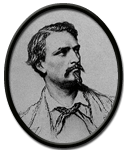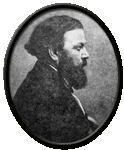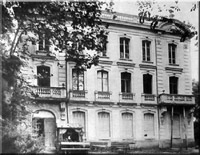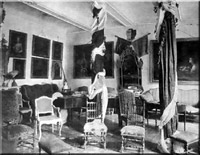Emile RIPERT
Conference extract: LE
FELIBRIGE
|
 |
The Mistral is this great wind which, from the mountains, rushes towards the sea, shaking the trees, shrubs, bushes, farmhouses and bastides of the country of Provence in its path.
However, one day in September, this strong wind, passing over one of these farmhouses, near the village of Maillane, entered the soul of a child who had just been born and who was of his family, since he was called Mistral, like himself.
This fiery-souled little boy was not very disciplined. He sometimes missed the village school, so much so that at the age of ten his parents, big farmers who had good fortune, locked him up for his studies in a small boarding school, an old abandoned convent in the heart of the Montagnette. , among the thyme which, when spring came, perfumed all these hills. It was too beautiful, it couldn’t last. The boarding school went bankrupt and closed its doors. And little Frederick – that was his name – was sent by his parents to a sad boarding house in Avignon, the city where the popes of the Middle Ages remained for seventy years, as their magnificent palace still recalls.
At the farmhouse, where little Frédéric Mistral was born, we spoke the Provençal language, once the language of troubadours, kings and princes and since then become a popular language, because; Provence having been reunited with France in 1486, the nobles and the bourgeoisie gradually began to speak the French language.
So, when he arrived in Avignon, the little Mistral heard that French was spoken around him, and at the lycée, where he attended classes, he was only taught French, at the same time as Latin and Greek, but never Provencal, that he was even forbidden to speak.
“Why am I being prevented from speaking like my father and my mother and all the people in my village? “.
This is the question that this child asked himself, who loved his parents and all those who had tenderly leaned over the early years of his childhood. He was in these feelings when he met a young teacher, called Joseph Roumanille, who was from Saint-Remy, a large market town near the village of Maillane.
Roumanille was a poet; a few years ago he had tried to write verses in French and then he had read them to his mother, and his mother had started to cry, not understanding them. So Roumanille tore them apart, vowing to write now verses that her mother could understand, that is to say Provençal verses.
|
|
However, to earn a living, Roumanille was a teacher in the small boarding school where the young Mistral was a student. One day as he was leading the students to vespers, he saw that one of them was writing on a piece of paper hidden in a book; he approached silently, seized the suspect paper and realized, weeping with joy, that these were Provençal verses that the young Mistral waswriting thus; because it was him!
This is how the master and the disciple who were to renovate the language of Provence and raise it from the unjust, recognized and embraced each other, one fine Sunday, to the singing of psalms and bells, in the papal city of Avignon. contempt where she was held then. |
|
| At that time, there was also in the city of Avignon a young man called Théodore Aubanel whose parents, for centuries, had been printers to the popes. Roumanille met him in the meetings of a charity work and as Aubanel was writing verses, he decided to write only Provencal verses. |
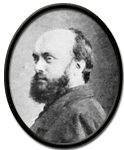 Théodore AUBANEL
Théodore AUBANEL
1829 – 1886 |
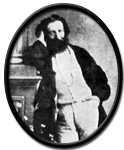 Anselme MATHIEU
Anselme MATHIEU
1828-1895 |
There was also at the boarding school where Mistralwas a young man who came from Chateauneuf du Pape, the famous wine country; his name was Anselme Mathieu,; he spoke Provencal and also wrote verses. |
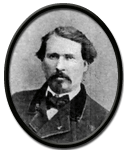 Paul GIERA
Paul GIERA
1816-1861 |
Lastly, there was a notary called Jules Giera who owned, not far from Avignon, the small castle of Font-Ségugne, where a young peasant named Alphonse Tavan sometimes came to say verses from Provence.
|
|
Castle of Font-Ségugne Châteauneuf-de-Gadagne Vaucluse |
|
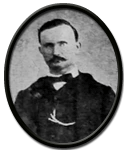 Alphonse TAVAN
Alphonse TAVAN
1833-1905 |
And here are six poets who, attracting to them a glazier from Avignon, Jean Brunet, were seven, and on May 21, 1854, met at Font-Ségugne to found the Félibrige.
|
|
Font-Ségugne castle
The show where the association of 7 Félibres was signed
Châteauneuf-de-Gadagne
Vaucluse |
|
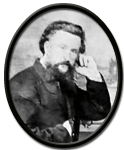 Jean BRUNET
Jean BRUNET
1823-1894 |
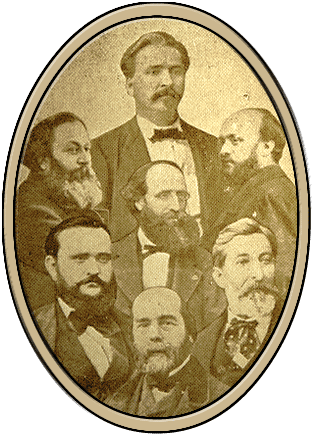
|



